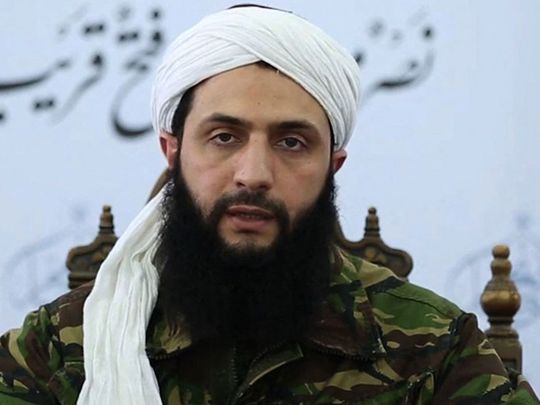
Abu Mohammed Al Jolani, the once-shadowy leader of Syria’s Islamist rebel alliance Hayat Tahrir Al Sham (HTS), is stepping into the spotlight, casting himself as a pragmatic leader with a vision for Syria’s future. Known for his role in toppling Syrian President Bashar Al Assad, Al Jolani is now seeking to reshape his image, transitioning from hardline militant to political reformer.
In an exclusive interview with CNN from an undisclosed location, Al Jolani outlined his ambitions. “The revolution’s goal remains the same: the overthrow of this regime,” he said. “The seeds of the regime’s defeat were always within it… the Iranians and Russians tried to prop it up, but the truth is clear: this regime is dead.”
A Vision for Governance
Al Jolani revealed plans to establish a government “based on institutions and a council chosen by the people.” He emphasized his intent to bring stability to liberated areas, including outreach to minority communities. Speaking directly to Aleppo’s Christian population, he assured them of their safety under HTS’s administration, signaling a departure from his earlier hardline rhetoric.
“We aim to secure governance and restore dignity to the Syrian people,” he stated.
Profile: From Damascus Student to Rebel Leader
Born Ahmed Al Sharaa in 1982 to an affluent family in Damascus, Al Jolani’s journey has been one of dramatic transformation. A diligent student, his life took a radical turn after the events of 9/11, drawing him into Al Qaida’s ideology.
He joined the insurgency in Iraq under Abu Musab Al Zarqawi, rising through the ranks before returning to Syria during the 2011 uprising. Founding the Al Nusra Front, Al Qaida’s Syrian affiliate, Al Jolani refused allegiance to Daesh in 2013, pledging loyalty instead to Al Qaida leader Ayman Al Zawahiri.
In 2016, he broke ties with Al Qaida to form HTS, citing the need to shield Syrians from Western attacks. This marked a turning point in his strategy, positioning HTS as the dominant power in northwest Syria and establishing a civilian government in Idlib province.
A Calculated Rebrand
Al Jolani’s efforts to rebrand include abandoning his nom de guerre, openly using his real name, and emphasizing his roots in the Golan Heights, tying his leadership to Syria’s broader national struggle.
“The less panic Jolani provokes and the more he seems like a responsible actor, the easier his job becomes,” said Aron Lund, a fellow at the Century International think tank. “Is it sincere? Surely not. But it’s the smart thing to do right now.”
Despite these efforts, HTS’s history remains a significant hurdle. The group has faced allegations of war crimes, human rights abuses, and suppression of dissent. Additionally, HTS is still designated a terrorist organization by the U.S., with a $10 million bounty on Al Jolani.
Challenges and Skepticism
Observers remain divided on Al Jolani’s transformation. Thomas Pierret, an expert on political Islam, noted, “Since 2014, his rhetoric has moderated, but his underlying goals remain unchanged.”
International skepticism persists, even as Al Jolani attempts to position HTS as a legitimate political force. His rebranding efforts may bolster local support, but global acceptance remains elusive.
The Road Ahead
Al Jolani’s evolution reflects both ambition and pragmatism. While he presents himself as a statesman committed to stability, critics argue his transformation may be more about survival than sincerity.
As Syria’s civil war continues to reshape the region’s dynamics, Al Jolani’s ability to navigate the fine line between leadership and his controversial past will determine his place in the country’s uncertain future.




